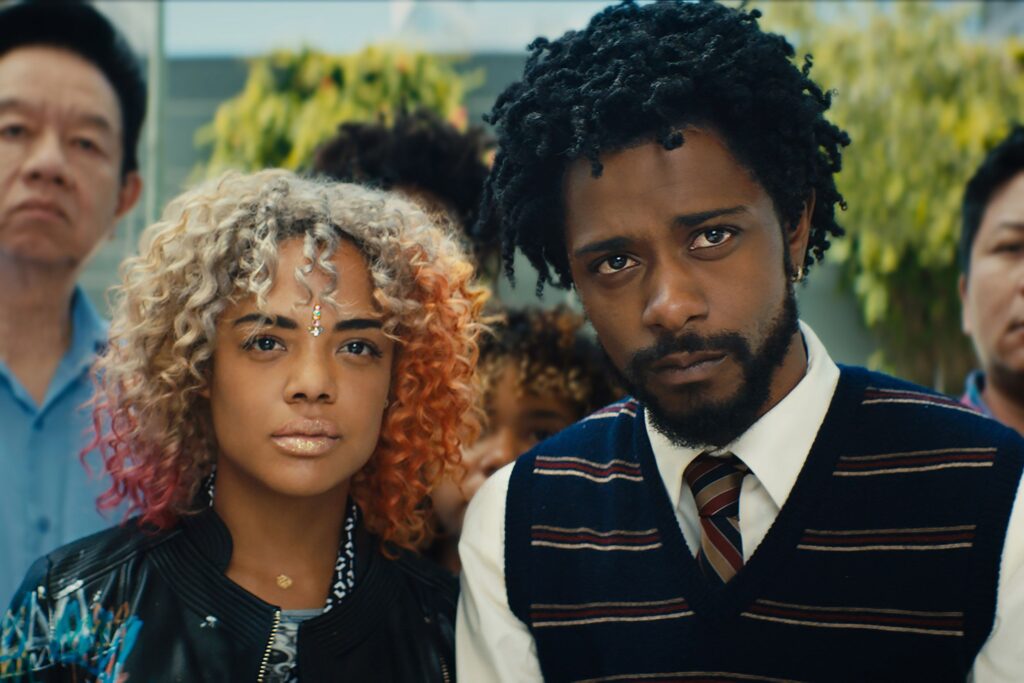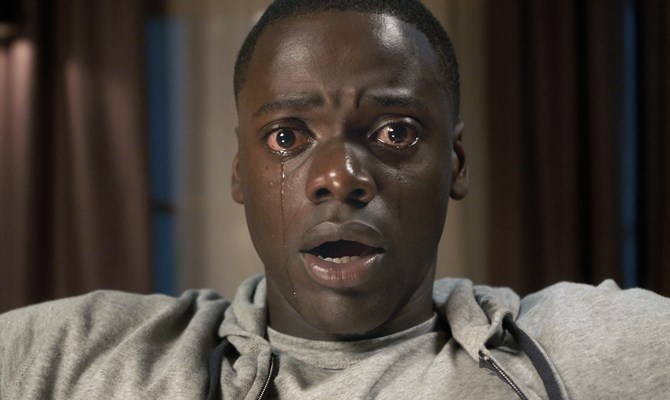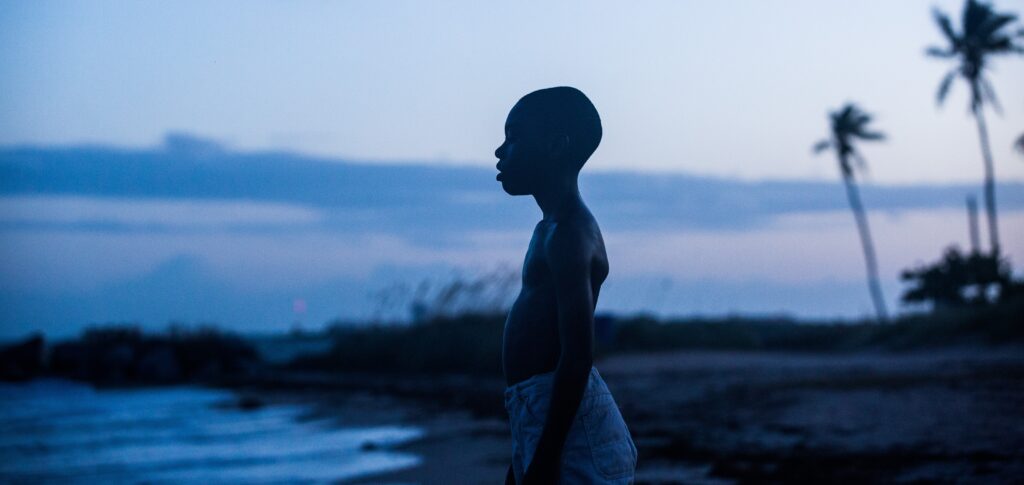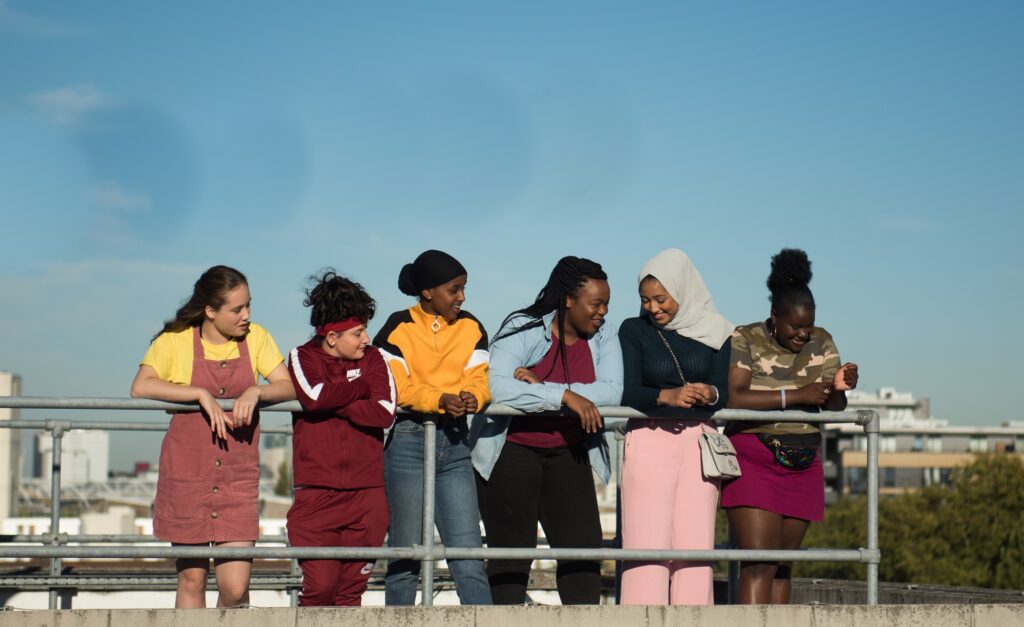This year’s film selection for Black History Month means a great deal to me. I spent the past year finishing my Bachelor’s degree in Filmmaking at Leeds Beckett, supporting the Bradford Hate Crime Alliance through their own celebration of Black culture, and watching a lot of films.
When I learnt I was going to be able to select some of my favourite films from talented Afro-Caribbean creators, I started writing a shortlist. I must have shown up to the first meeting with about 50. It was like Lenny Henry’s MOBO acceptance speech—I was just rattling off names for a couple minutes. Naturally, the shortlist had to be made, well, shorter, so I decided to use this chance to edit, and decide on which thematic direction I wanted to steer the selection in.
Too often, I seem to see the same movies shown over and over at Black History Cinema screenings, focusing on the historical plight of slavery, or the battle for civil rights in America. While these topics are a very real and important part of our history, I do feel like the movies portraying them sometimes overshadow those focused on current topics, more pertinent to the Black community in 2023.
I feel that, while there must be time for lamenting and reflecting on the past, it is just as important (if not more) to celebrate the present and look hopefully towards the future. So, I have chosen five of my favourite lesser-known examples of Black creativity in recent years. I hope to cover a range of aspects of life being Black in the 2020s, to challenge perception of what genre can be, and most of all, to put some people onto some great cinema!
Sorry To Bother You

Sorry To Bother You is easily in my top five favourite films of all time. Director Boots Riley is just at full tilt, constructing a whole Afrosurreal universe, filling it with dynamic characters and a rollercoaster of a plot to boot. His directorial debut, the film critiques capitalism, modern slavery, mainstream media and racial politics. The directional clarity of Sorry To Bother You is irresistibly charming which, by extension, means that the film can make complicated points to the audience seamlessly in an engaging way.
Riley himself describes the film as “an absurdist dark comedy with aspects of magical realism and science fiction inspired by the world of telemarketing”. The screenplay was inspired by his own time working as a telemarketer and in California.
Lakeith Stanfield (who you might recognise from tv show Atlanta or Get Out—which also made the shortlist) is phenomenal as Cassius Green, a man in financial freefall, who desperately takes on a commission-only role as a telemarketer at a call centre. At first, he is unable to get even a few words in, until he finds an unusual route to great success. But now money is the least of his problems, all his other ones only get worse.
Sorry To Bother You is one of those films where you should really go in knowing as little as possible, which always makes recommending it tricky. However, I can say that it starts out weird, and only gets weirder. It’s got something for everyone, it is razor sharp with its satire, and you probably haven’t seen a film like it.
Get Out

Get Out is special to me, not just because it put a spotlight on Black horror as a genre, but also because it helped shoot Britain’s own Daniel Kaluuya to superstardom. His standout performance in the episode of Black Mirror ‘Fifteen Million Merits’ caught the eye of Jordan Peele (Yes, as in Key and Peele) and secured Kaluuya the leading role in this chilling and diabolical study of race relations in the modern world. And he nails this role too.
It’s hard to believe this is the same young man who played Posh Kenneth in Skins (2007) all those years ago (though even at 18 he was head writer on multiple episodes of the first season of the show). Since Get Out hit theatres, Kaluuya has performed starring roles in some of the biggest films of the 2000s. Judas and the Black Messiah (2021) narrowly missed inclusion on this shortlist, but his portrayal of civil-rights activist Fred Hampton garnered him a much-deserved BAFTA and Academy Award for Best Supporting Actor.
Young black street-photographer Chris Washington (Kaluuya) has been invited to stay with his relatively new white girlfriend Rose Armitage’s (Alison Williams) family for the weekend. I would imagine a couple of you reading this got a shiver down your spine from that premise alone, but as the plot progresses, it quickly becomes clear that something is deeply wrong at the Armitage’s manor. Themes of sci-fi and horror collide with witty comedy and a plot that takes a disturbingly close look at modern racial tension.
Get Out has, in turn, opened the door for so many other stories and creators from the black community worldwide. Jordan Peele has continued writing and even collaborated with Kaluuya again in cult-horror flick Nope (2022). Get Out was a landmark in the Black horror genre at its time of release but is still as pertinent as it is rewatchable. Not bad, Posh Kenneth, not bad at all.
Moonlight

I suppose I was already curating when the pandemic struck. Sat around in my university accommodation during lockdown, many nights were spent with me sticking DVDs on to entertain my unsuspecting flatmates. Moonlight is the kind of movie I would put on during lockdown to make my flatmates cry. It worked every time. I was the only one in the house with Black heritage, but by the time the end credits rolled, pretty much everyone would be sobbing. It’s rare that we see such a raw and vulnerable character study executed to such a high degree, and even rarer that we see topics like LGBTQ+ life and toxic masculinity examined through a Black lens this way.
Focusing on the life of Chiron, son of a single mother in a neighbourhood in Miami, Moonlight is split into thirds. We see the effect growing up queer and Black has on Chiron from childhood to adolescence to young adulthood. Set by the east coast, there are a few scenes involving Chiron floating in the ocean. However, what the film does perfectly is conveying that same feeling of being lost and powerless to a vast and uncontrollable force on land. The audience is held desperately close to the character of Chiron as the film progresses, and the way time is used makes it feel like we truly know and understand him by the end.
Moonlight is packed with actors at the top of their game, conducted masterfully by director Barry Jenkins. Some characters are portrayed by different actors as time progresses, but the audience is graced with an interstellar performance from Naomie Harris as Chiron’s mother Paula throughout the different eras. The amount of skill and intelligence it must have taken to assume such a role boggles my mind, especially considering Harris is undeniable from the moment she appears. Every aspect of the film has been planned, polished and executed perfectly and, three Oscars later, it seems like time, money and effort well spent. Required viewing for every one of us.
Rocks

Rocks took me by surprise. I put it on expecting a kitchen-sink drama that I could play in the background while I cooked. By the end I had sat and watched the entire thing without chopping a single onion. The true strength of this film lies in its paramount rendering of the characters portrayed by the young starring actresses.
I have spent a lot of time living in London, and these characters are some of the most true-to-life depictions of personas I have grown up around that I have ever seen on the big screen. By combining a meticulous planning period from director Sarah Gavron and the lead writers (Theresa Ikoko and Claire Wilson) with improvised scenes and workshopped dialogue, Rocks has realism that borders on documentary style at times. Watching it, I recognised aspects of my sister’s personality, that of my friends from school, and the girls around me growing up in London. The payoff from such realism is that the plight of our protagonists seems even more heartbreaking, and the film creates a significant amount of empathy between the audience and the characters.
The film follows Bukky Bakray as Olushola “Rocks” Omotoso, a schoolgirl living in Hackney with her mother and little brother Emmanuel (D’angelou Osei Kissiedu). When she returns from school to find that her mother has simply walked out on the two siblings, Rocks is shunted into the role of primary caregiver for her younger brother, without letting social services know their situation. Even after enlisting the help of her friends at school, Rocks can only survive so long on her own, and before long she is forced to make some difficult decisions.
This film is a celebration of Black British women, sisterhood and survival through hardship. It’s one of the most accurate depictions of modern adolescence in London that I can think of through a female lens, and it will stick with you for a long time after the credits roll.